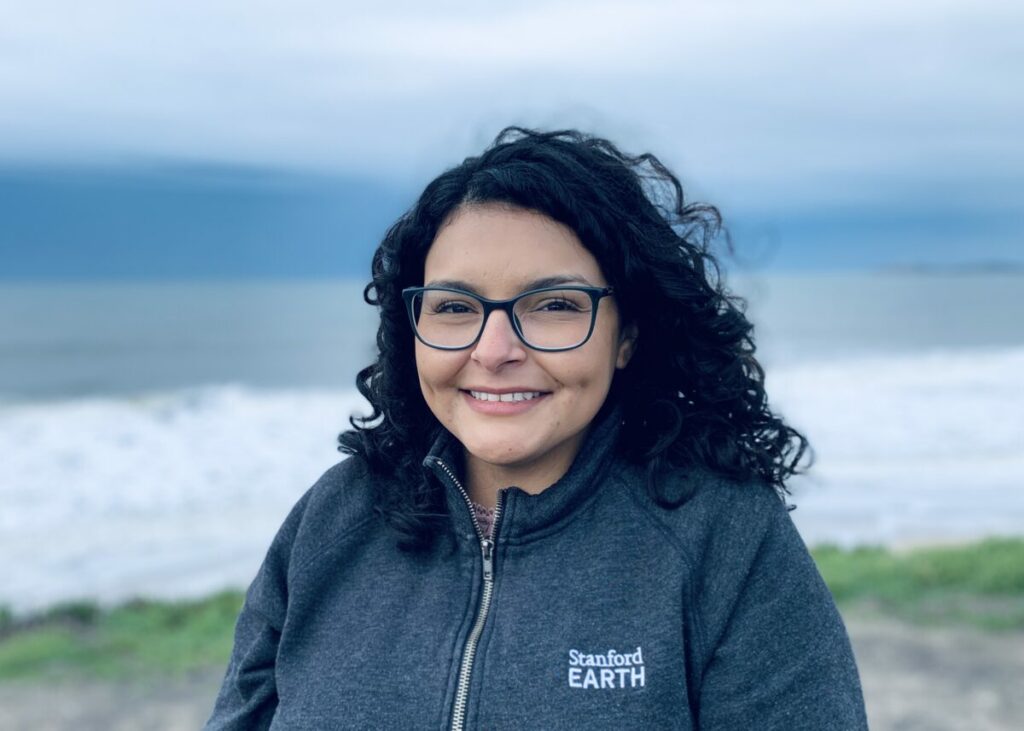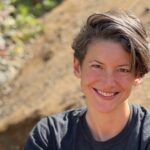
Editor’s Note: Claudia Christine Avila is a winner of The Story Exchange’s 2023 Women In Science Incentive Prize.
For as long as she can remember, Claudia Christine Avila would spend time with her Mexican-born mother tending a vegetable plot at their southern California home. “There’s pictures of my mom with me strapped on her back … because I always gardened with her,” she says. Her mother’s “love language,” says Avila, is to make salsa from tomatoes cultivated in her own patch of earth.
Avila, now a soil biogeochemist and assistant professor at the University of San Diego, believes that early passion for gardening and the experiences of the many farmworkers in her family led to her study of environmental sciences. And it’s why she decided to teach students about soils which, she says, “are the most important and overlooked resources on Earth, a thin veneer upon which life on Earth depends.”
“It’s really powerful for people to be connected to the land,” she says, “and actually listen to what the soil is telling you.”
Avila teaches her students that soils provide a variety of ecosystem services like storing and filtering water and acting as a medium for plant growth and food security, a carbon sink, and a habitat for billions of organisms. Soils are a living, dynamic entity that change and develop—and can be harmed or helped—based on human activity. And that can have dramatic impacts on people’s lives and livelihoods, she says.
In her work, Avila partners with farmers in southern California who are concerned with declining water availability to study how drought and fire transform soil and affect water quality. She also investigates how those soils store carbon dioxide from the air as climate shifts. “Although I use soil biogeochemistry as a tool, my central research focus is environmental justice and aims to build community around identifying and resolving issues at the intersection of people and environment,” she says.
For example, during a prestigious Stanford Earth Postdoctoral Fellowship over the past two years, Avila was focused on how more frequent and intense wildfires impact soils, but her underlying question was: what happens when humans are exposed to toxic metals? In addition to looking at soil health post-fire, she wanted to know what effects those heating metals could have on wildland fire crews – who are often incarcerated individuals in California – and migrant farmworkers, who might inhale contaminants. “They don’t have enough protective equipment when they’re working and they’re usually camping in these large landscapes for months at a time, trying to make sure everything’s safe for other people to return,” says Avila.
Avila’s background and identity—as a self-described Chicana in the hard sciences—also informs her teaching. She learned about soil science via a predominantly white male lens and wants to offer something different to her students. “That way didn’t account for all the different societies that have always appreciated and understood soils. It’s a fun opportunity to teach soils in a way that I wish I was taught soils,” says Avila.
“I tell my students it’s okay to have a different viewpoint, those are all valid and we can learn from each other by sharing,” she says. “There isn’t just one way to get through STEM fields. There are lots of different ways and sometimes you have to be stubborn.” ◼️



